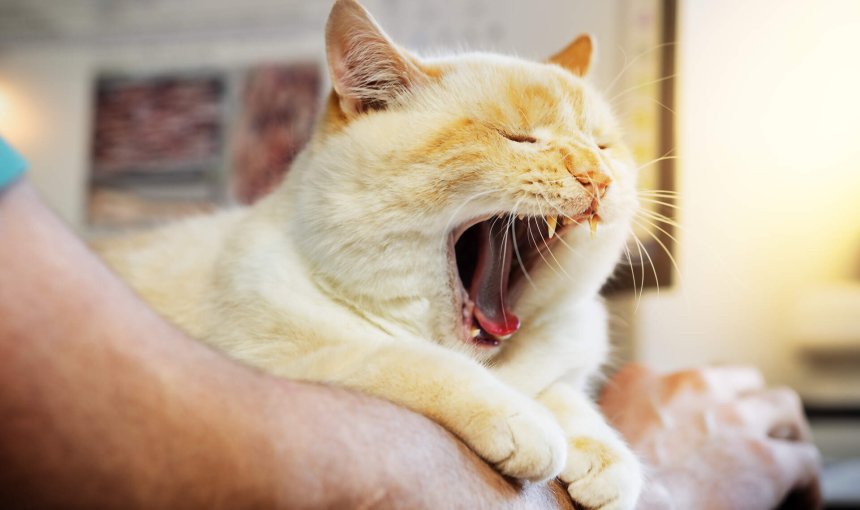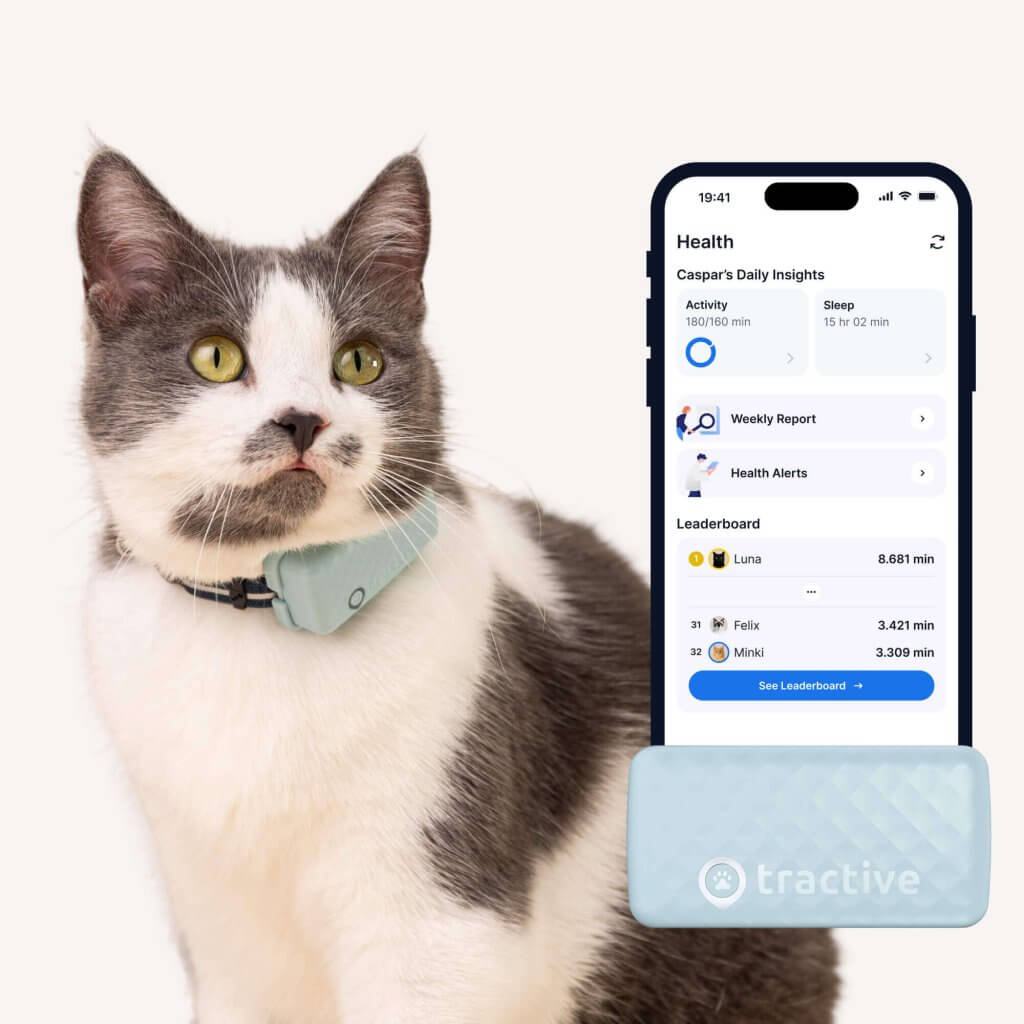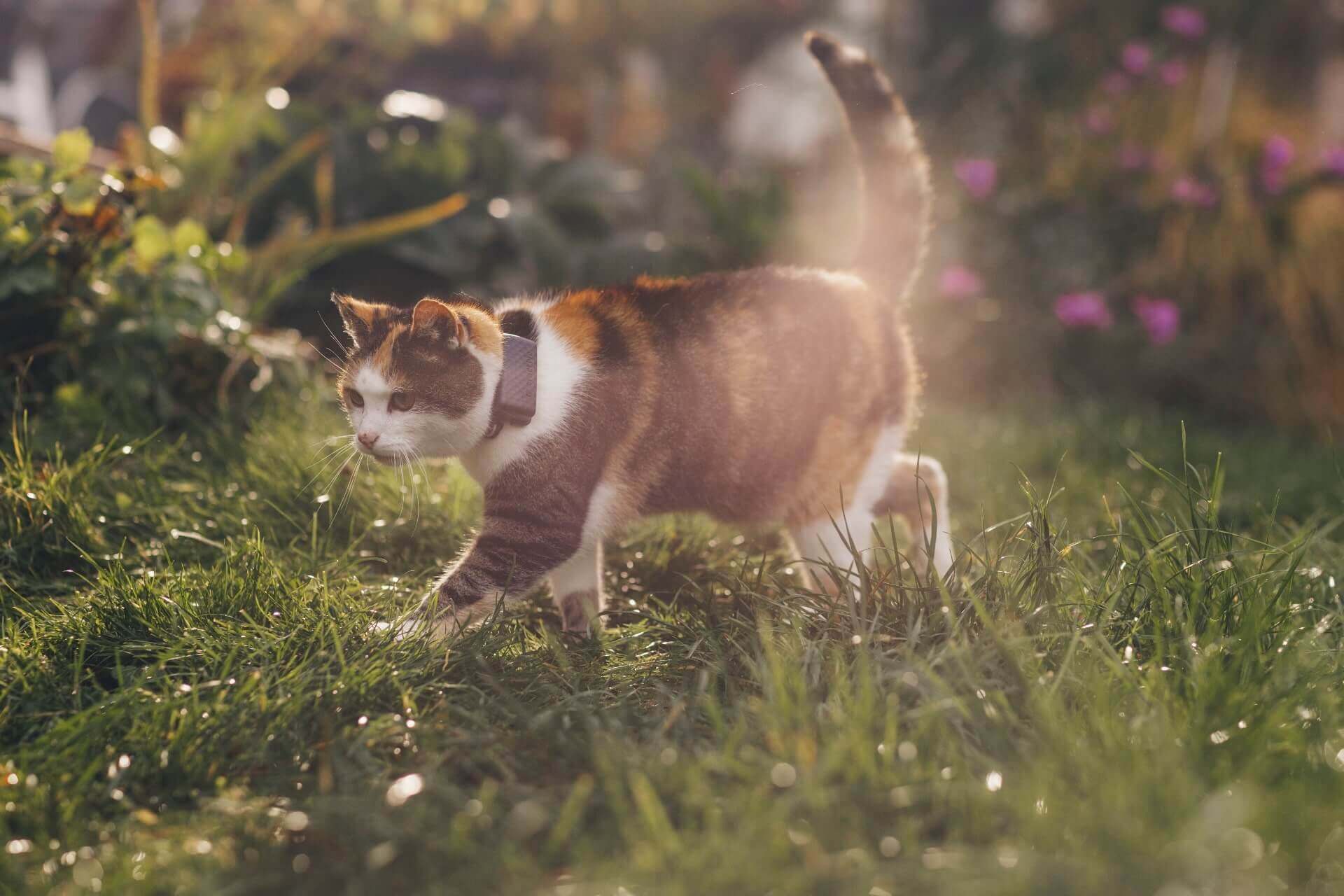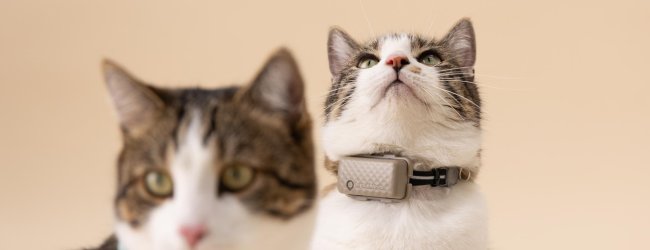Why Is My Cat Crying? The Real Reasons Behind Feline Tears.
Seeing (or hearing) your cat "cry" can be heartrending - but do cats cry for the same reasons humans do? Turns out it could be them trying to get your attention, something in your environment, or a health issue.

From purring to meowing to hissing…our feline friends have a ton of ways to communicate with us. But it’s still pretty heartbreaking when you see your cat crying tears! So you might’ve wondered: why is my cat crying? And why is it happening in the first place? Read on for some reasons behind why your cat is “crying”, why they tend to cry at night, and when it can signal a health issue. Plus, how a smart cat collar with GPS and Health Monitoring can help prevent an emergency.
Key Takeaways
Cats often vocalize (meow, yowl) to get our attention, whether for affection, food, or play. Unspayed female cats in heat may “cry” or yowl excessively to attract mates.
Your cat’s “teary” eyes may be because of dust, allergens, or certain food sensitivities. All of these can lead to discharge, sneezing, and coughing.
Cats are naturally crepuscular (most active at dawn and dusk.) Crying at night can also indicate stress from routine changes, pain, or age-related cognitive decline.
A smart cat collar with real-time GPS monitoring can help you locate your cat in no time if they’re sneaking outdoors to find a mate. Else, monitor their health and well-being through Activity and Sleep Tracking to spot potential issues early.

Find out where your cat spends their time.
Read moreWhy is my cat crying tears? Or just, well, crying?
Your cat might be crying for a number of reasons. But we assure you, these aren’t “tears” the same as ours when we’re sad. Cats really don’t cry tears for the same reasons humans do. They simply lack the emotional response that triggers tears in humans – i.e. sadness, frustration, anger, or stress.2
But at times, you might’ve noticed how your feline friend might have watery eyes. Or what looks like a “tearful” discharge. So here’s a deep dive into the reasons why your cat is crying tears:
- Attention seeking
Cats learn pretty quickly that certain behaviors (like, say, meowing) might be likely to get them your attention. So if you’re wondering why your cat is “crying” in a way that sounds like a sob or wail, don’t be fooled. They’ve learned that it gets your attention and affection – even when they show no signs of distress otherwise. - Mating instinct
An unspayed female cat might yowl or “cry” more than usual. This is how she attracts male cats and signals that she’s ready to find the purr-fect mate. - Environmental allergens
Including dust, mites, some types of food, or even household cleaning products. These might trigger allergies in the form of watery eyes, runny noses, sneezing, and coughing. If your cat shows these symptoms along with sneezing or coughing, drop a visit to your local vet to get a proper diagnosis and treatment. - Eye infections
In some cases, your cat’s “crying” eyes might indicate that they’re experiencing an underlying ocular problem. These might include conjunctivitis, corneal ulcers, or something as simple as a foreign object stuck in their eye – all of which can cause excessive watering. If your cat’s eyes are red, swollen, or they’re indicating any discomfort in their eyes, head over to your local vet for a full check-up.
💡A smart cat collar with Health Monitoring can help you pick up on the warning signs of illness – like lethargy, or a drop in your cat’s activity – much in advance. So you can take action early and get your cat to a vet before they get worse.

Get health alerts for your cat
Our cats can’t always tell us if something’s wrong. But if their tracker detects unusual changes in their routine, you’ll get an alert, helping you catch potential issues early.
Why do crying cats sound like human babies?
Cats are master mimics. If you have a newborn at home who’s been pretty insistent about mealtimes, your cat learns that yowling like a baby can get them fed too. “Crying” cats can sound quite similar to crying infants.3 And that’s at least partly because cats are smart and have learned that this sound (indicating helplessness) is most likely to get a human running over immediately. (Often with treats and toys at hand.)
So keep an eye out for whether your cat is in any sort of pain or discomfort when they “cry.” It’s more likely the case that they’re bored, hungry, or just want some cuddles.
Why is my cat crying at night?
If you’ve been woken up more than once with a case of feline midnight melancholy, you’re definitely not alone. Here are some reasons why your cat is “crying” at night:
- It’s when they’re naturally most active
Cats are crepuscular animals, which means they’re the most energized at dusk and dawn. So you might experience this if your cat has learned that crying gets them meals around then. Spend some time playing with them before bedtime to tire them out or give them a heavy, warm meal around then. - They’re stressed out
A change to your cat’s routine can be stressful. This could mean a move to a new home, a visitor sleeping over, new guests, or even another new pet. As a result, they might “cry” more often at night when you’re not around, so they can get your attention and affection. - They’re in pain or discomfort
If you’ve noticed your cat’s night-time crying accompanied by any other health symptoms like vomiting, lethargy, or diarrhea, get in touch with your local vet immediately. Older cats, for example, might be more likely to experience conditions like arthritis or cognitive decline – so they might be more restless and cry during nighttime. Other conditions, like urinary tract infections (UTIs) can make it difficult for them to urinate properly, so they might meow and cry insistently to wake you up and help them with the litter box.
Where a smart cat collar can help prevent an emergency
No matter why your cat is “crying” – you’re always better off preparing for an emergency. Which, in this case, could be them escaping outdoors to find a mate…or experiencing a health issue. That’s where technology can lend a hand. Aka, as a smart cat collar that includes both GPS and Health Monitoring.

Strapped to your cat’s collar, you can now:
- Track your cat in real-time
If your cat manages to slip out while in heat, real-time GPS tracking allows you to pinpoint her exact location instantly. You can see her movements on a map and quickly retrieve her before she wanders too far or encounters dangers. This prevents unwanted pregnancies and ensures her safety. - Prevent your cat from wandering off to find a mate
An unspayed cat might yowl to attract a mate when in heat. In these times, she might experience a strong urge to escape home. From your Tractive mobile app, you can set up a “safe zone” around your home or backyard – and get an escape alert if she leaves it. - Figure out where your cat spends most of their time
From their Heat Map and Location History. In case your cat’s been hanging out in any pollen-riddled areas in your yard or a neighbor’s property, it could trigger an allergy. The quicker you can find them, the faster you can get them to the vet for a checkup. - Spot potential health issues early
Your cat be “crying” to express discomfort from a potential health problem. With its built-in motion detector, your tracker monitors your cat’s activity and also sleep quality – and sends you a Health Alert if there’s any weird change that might need a checkup at the vet.



